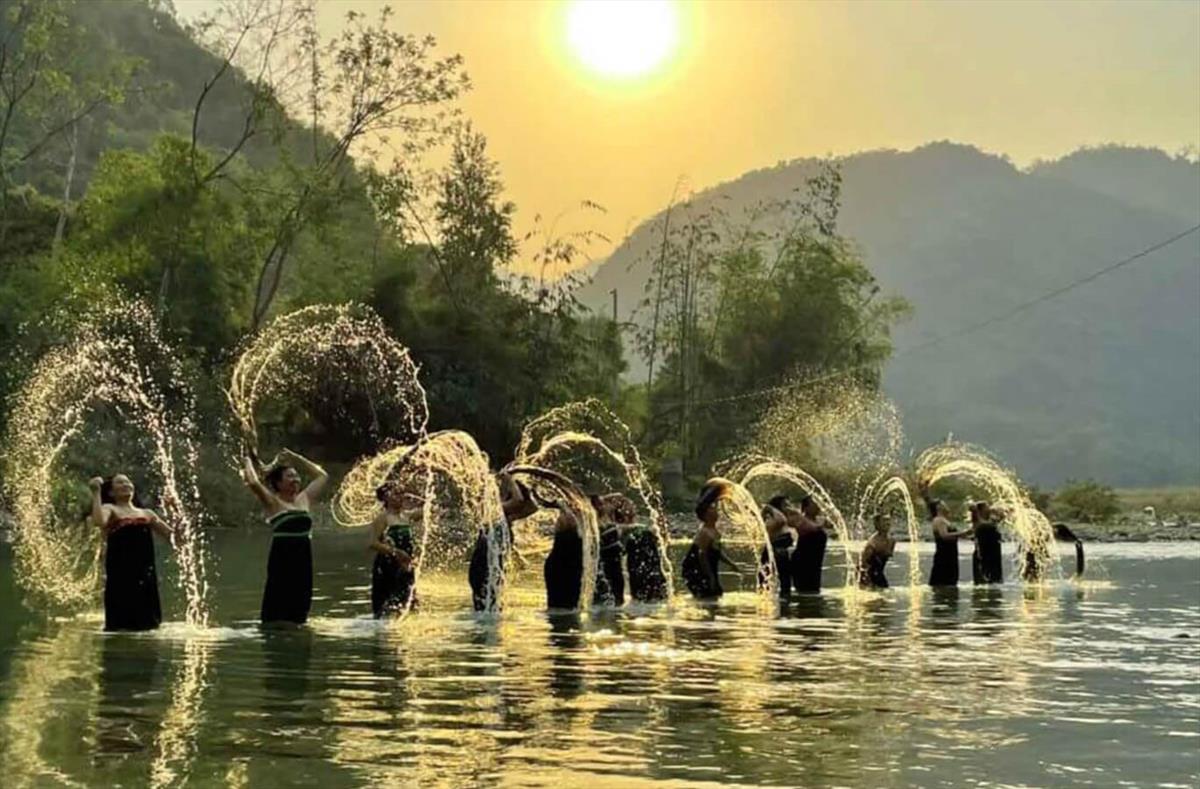The Hair Washing Festival of the Thai People in Lai Chau

The festival includes various activities that showcase the cultural essence of the White Thai people. Before the festival, families prepare offerings such as fruits, traditional liquor, square sticky rice cakes, and bring hair washing tools like bowls, spoons, and towels. The festival begins early in the morning with rituals at the Then house, an ancient temple of the White Thai people. Here, the shaman recites prayers, makes offerings, and seeks permission from Thu Bon to organize the festival.
After the ceremonies at the Then house, the procession moves to the Nam Lum stream to prepare for the Hair Washing Festival. Families line up on both sides of the stream and use the tools they brought to wash each other's hair. The person washing scoops water from the stream into a bowl, pours it slowly over the other person's head, and speaks words of good wishes. After washing, the person being washed dries their hair with a towel and thanks the washer. They then switch places to wash each other. The hair washing process continues until everyone in the family has been washed. Afterward, families together offer fruits, traditional liquor, square sticky rice cakes, etc., on the altar of Thu Bon and pray for the new year.
In addition to the rituals, the Hair Washing Festival includes many entertaining and interactive activities among families and villages. Common activities include water splashing contests, traditional cake-making contests, cheo singing, human chess, tug of war, and more. The water splashing contest is a simple but attractive game played with three six-sided dice, each side featuring different symbols: gourd, crab, fish, tiger, rooster, and shrimp. Players place bets on one or more faces of the dice and roll them. If any face matches the bet, the player wins and receives money from the bettor. The cake-making contest showcases the skills and cleverness of housewives. They compete in making traditional cakes such as banh day, banh tet, banh giay and present them to the judges. Cheo singing is a popular form of folk opera in the North, known for its high entertainment value and reflection of the emotions, sentiments, and life of the people. Cheo is performed by actors with good singing, natural acting, and humor. The plays often revolve around themes such as love, family, society, or history. Human chess is a performance and interaction game between villages. It is played on a large chessboard with 64 squares like a chessboard. Each side has 16 participants, each carrying a chess piece with different symbols. The two sides will compete according to the rules of chess to capture the opponent's chess pieces.
The Hair Washing Festival of the Thai people in Lai Chau is a unique and culturally significant festival in Lai Chau. The festival not only helps the White Thai people preserve and promote the cultural and spiritual values of their ethnicity but also serves as an opportunity for tourists to explore the beauty of Vietnam's traditional culture in rural areas.

